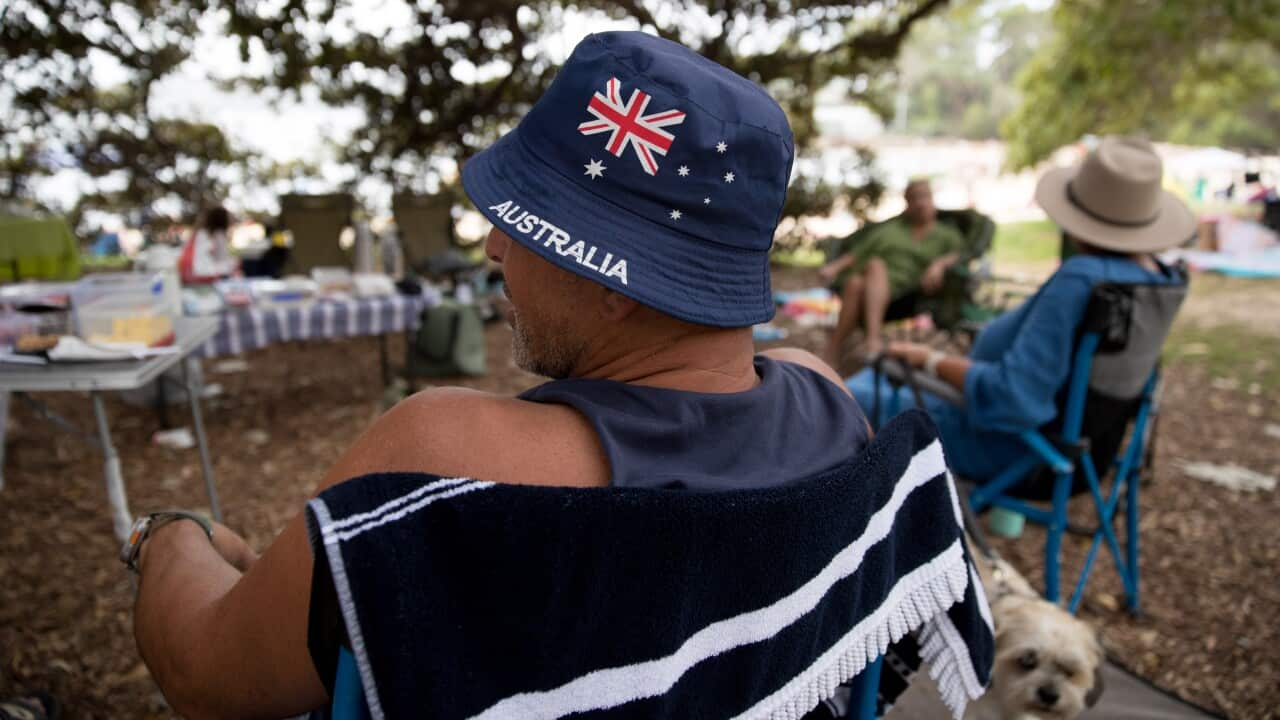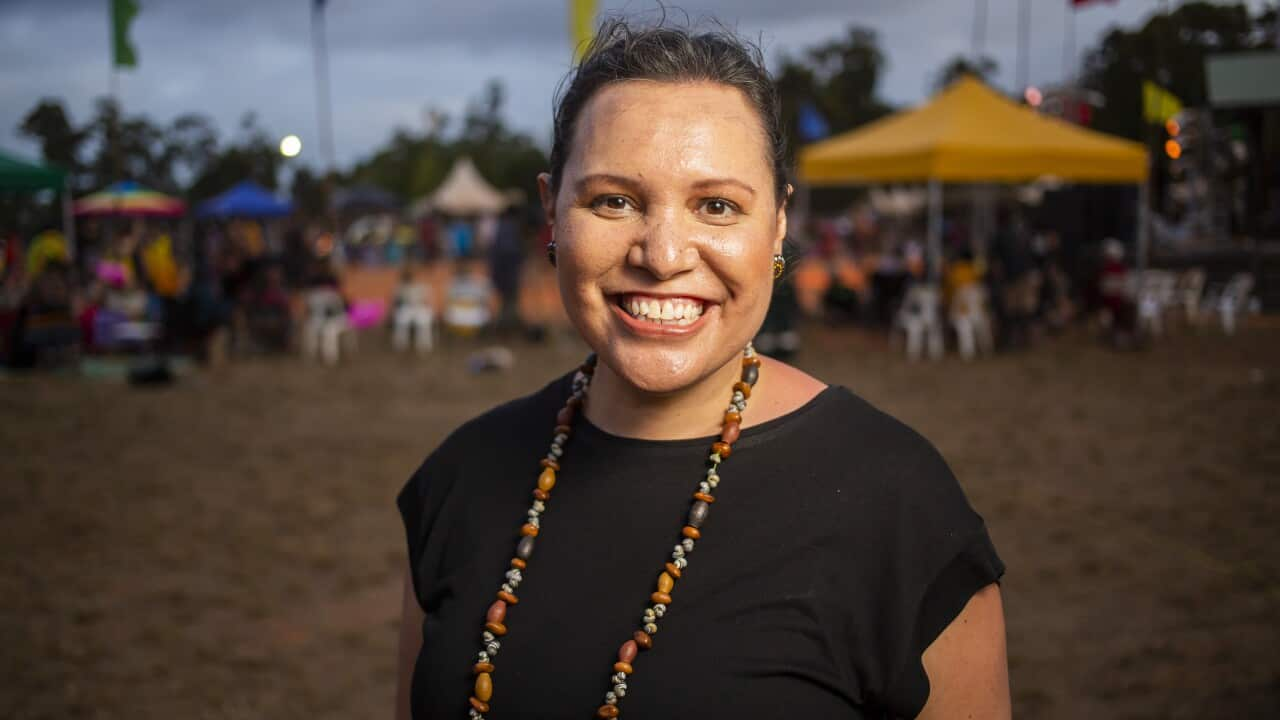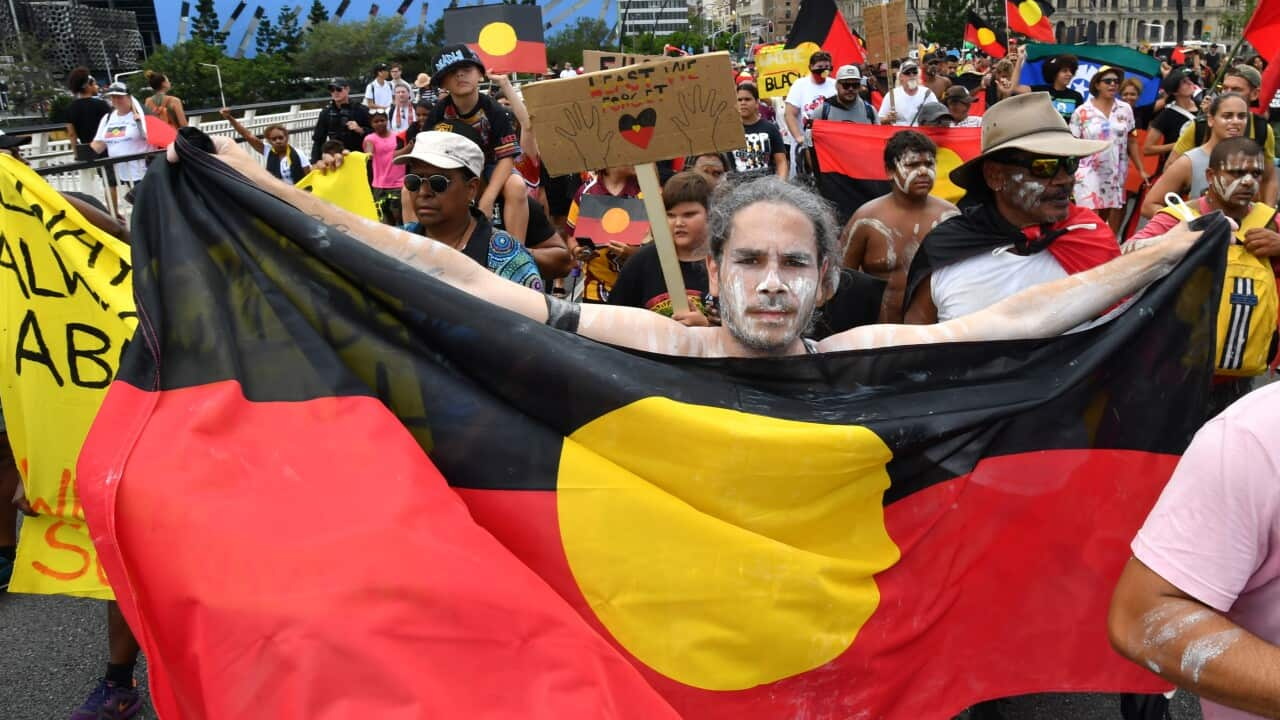As discussions around changing the date of Australia Day resurface ahead of January 26, polling released on Friday shows a majority of Australians support keeping the date unchanged.
Australia Day became a public holiday in 1994 and marks the day the First Fleet landed in Sydney Cove in 1788. But, many Australians, both Indigenous and non-Indigenous, .
Polling from Resolve Strategic, published in Nine Newspapers, shows 24 per cent of respondents want to change the date, a sharp decline from October 2023, when 39 per cent of those surveyed expressed support for the change.
Support for keeping January 26 as Australia's national day rose from 47 to 61 per cent over the past two years, the survey of 1,616 people shows. The accompanying article ran with the headline: Support collapses for changing date of Australia Day.
But comparing other similar polling released recently, it's not clear if there's been a significant drop in support, according to experts.
'A small blip'
David Lowe is the chairman of contemporary history at Deakin University and was a researcher on polling that found there's been very little overall change in attitudes since 2021.
From over 2,100 responses published this week, 58 per cent of people disagreed with the statement "we should not celebrate Australia Day on January 26".
However, Lowe noted a "small blip" in the results in 2023, when about 41.6 per cent of people supported changing the date, up from 39.5 per cent the previous year. In 2024, 41 per cent of people agreed with the statement.
"It could be related to current debates, including the Voice Referendum, or it could be a little bit of statistical noise as well," Lowe said.
"In last year's results showing that [there] did seem to be a shift away from January 26, but the most recent results suggest that we're pretty close to where we were in 2021."
In 2021, 59 per cent of people disagreed with changing the date, while 39.5 per cent of people agreed with it, reflecting only a percentage shift to nearly 58 per cent agreeing in 2024.
Polling numbers 'wax and wane'
Deputy prime minister Richard Marles said poll numbers "come and go over the journey" but Australians should celebrate Australia Day.
He told ABC News Breakfast on Friday that he does not believe support has shifted following the .
"As I say, I think you'll see these numbers wax and wane from year to year. At the end of the day, ours is a country which is worth celebrating. This is the day on which we do it."
Opposition leader Peter Dutton has said one of his first actions if elected prime minister will be to l.
is a "celebration of while we are the best country on Earth ... how do we ensure that we're even better in the future?"
He said the other focus of Australia Day is recognising "the fact that we are the continent with the oldest continuous culture on Earth, and what a privilege it is", acknowledging the date is a "hurtful day, a difficult day, for many First Nations people".
Lowe said the issue is being politicised ahead of the upcoming federal election.
"It's definitely been caught up in the culture wars and politicians are probably trying to capitalise on some voter fatigue following the Voice Referendum," he said.
He said it's likely there will be a shift away from holding Australia Day on 26 January, given the percentage of young people who support changing the date.
More than half of respondents in the 18-34 age group (53 per cent) supported a change, compared to 39 per cent of 35–54-year-olds, 33 per cent of 55–74-year-olds, and 29 per cent of those aged 75 and older.
"Given that we're seeing a reasonably steady holding small majority of younger people wanting change, then you expect that to follow through that to have consequences, probably in the longer term," Lowe said.
"In the same way that most commentators say that the younger demographic was really important in doing momentum behind the change in marriage equality and for that to succeed younger people had an important role in driving that."
Polling from Roy Morgan suggested men and women have different views on changing the date or name of Australia Day.
According to SMS polling conducted in 2024, 61.5 per cent of women said the day should be known as Australia Day, compared to 76.5 per cent of men.
The Roy Morgan polling did show a jump in support of Australia Day since 2023, with an additional 7 per cent of men and 3.5 per cent of women backing the name.
Around 50.5 per cent of women said the date should be changed, and 32.5 per cent of men said it should be changed.




